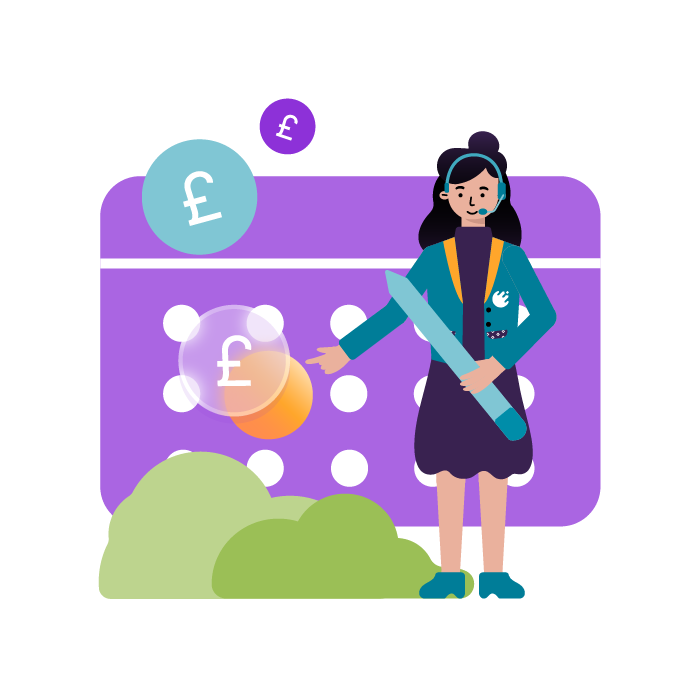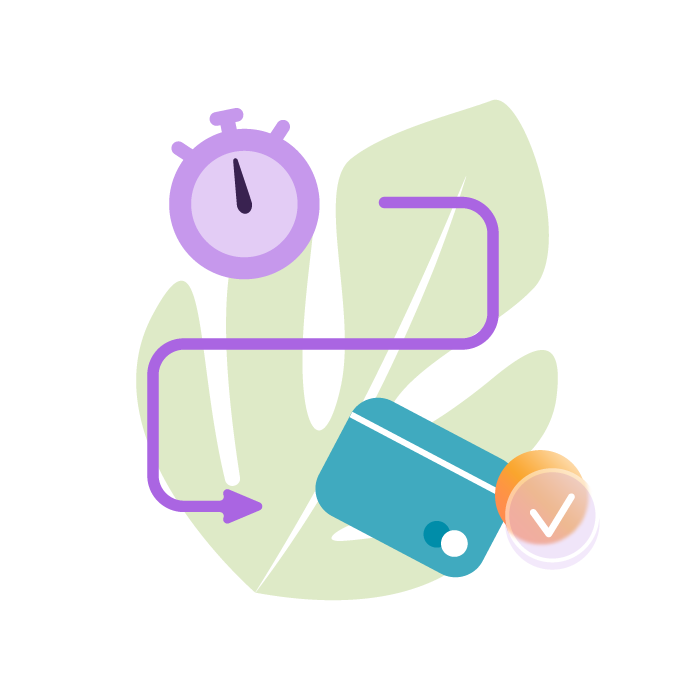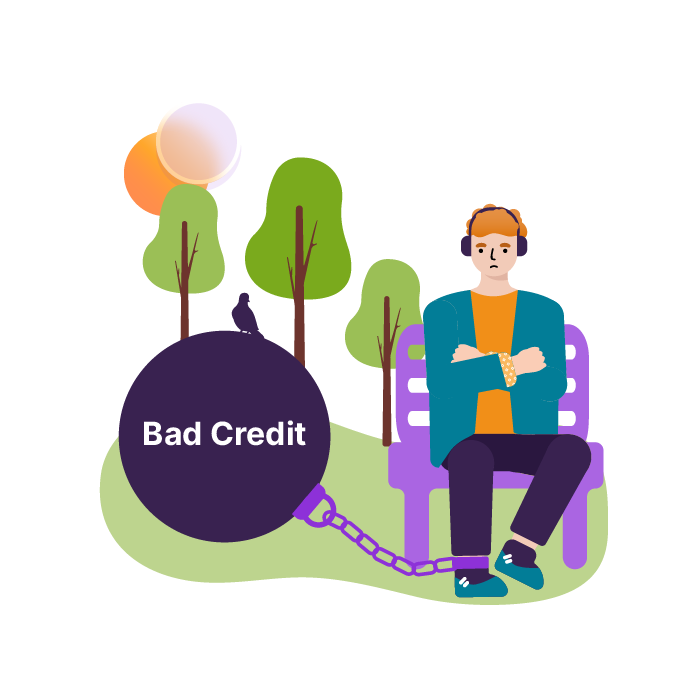Credit Card Advantages & Disadvantages: How do I Know if Credit Cards are Right for Me?
Finding the right credit card can be difficult, but it’s important you know the advantages and disadvantages before you make your choice.

In this article, we'll cover:
- The advantages and disadvantages of using a credit card
- What are the benefits of a credit card?
- What are the disadvantages of a credit card?
- How can I stay on top of my credit card balance?
- Will a card impact my credit history?
- Common credit card FAQs
- Stuck in credit card debt? A Consolidation Loan could be the way out
When you use your credit card responsibly, it can be a fantastic tool to help you spread the cost of large purchases, and even get some useful perks along the way! However, there are some risks to a credit card if you use it without proper planning.
The advantages and disadvantages of using a credit card
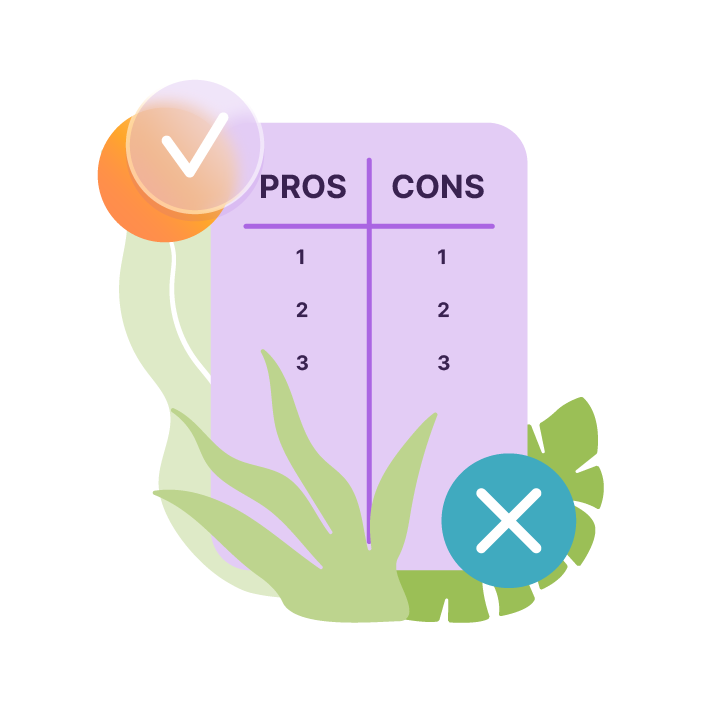
Credit cards can be an excellent tool to help you budget, and provide short-term coverage for essential purchases. But, as with any financial product, a credit card does have its risks as well as its advantages.
In this guide, we're going to lay out the risks and benefits of a credit card, in addition to some simple advice on how to stay on top of your credit card balance, and even some options if you find you're struggling due to a high interest rate or late payment fees.
What is the purpose of a credit card?
A credit card gives you the ability to borrow money from a lending institution, up to a certain limit. You can use your credit card to make purchases, withdraw cash, or transfer funds to another account.
In most cases, you'll need to repay your credit card balance in full each month. However, some credit cards offer interest-free periods, which allow you to carry over your balance from month to month without accruing any interest.
Credit cards can be a useful tool if used responsibly. However, it's important to understand the terms and conditions of your credit card before using it, as well as the fees and interest charges that may apply.
What are the benefits of a credit card?
There are dozens of benefits that using a credit card carefully and sensibly can provide. Some of these include:
- Build your credit score - A major benefit of a credit card, and one of the main reasons people choose credit cards early in their life, is that it can help to build your credit score. Careful use of a credit card can really improve your credit rating, develop positive credit history and even help you further down the line, when you apply for things like a mortgage, car financing or other loans.
- Spread the cost of large purchases - A credit card gives you the opportunity to spread the cost of a large purchase over several months, or even longer if you need. Credit cards are commonly used to purchase things like holidays, laptops, furniture and home renovations. Almost any large purchase you can think of can be covered by a credit card.
- Credit card perks - Some credit card companies will reward regular, responsible use of a credit card with perks, such as cashback, air miles and more. Not every credit card company will offer these perks, however, so it's good to shop around and compare before you decide on a credit card.
- An interest-free period - Most credit cards in the UK will offer an introductory 0% APR period, which is essentially an interest free period. That means you can use them to make interest-free purchases or balance transfers from other credit or debit cards.
- Added protection - A credit card company will offer you added protection against scams, fraud and other criminal activity. Your credit card should also offer an added level of insurance that you're unlikely to get with other payment methods.
What is the main credit card advantage?
The main advantage of a credit card is ready access to credit that you wouldn't otherwise have. These credit facilities allow you to spread the cost of large purchases over a period of many months. That could include leisure purchases, such as a holiday, or essential purchases like vehicle repairs or home renovations.
Which is safer: Cash or credit card?
Typically, a credit card is a safer option when making a large purchase. However, there are pros and cons to either method. With a credit card, you have more security, more protection and it can be a great deal more convenient. However, with cash, you know that you can definitely afford whatever it is you're purchasing.
What are the disadvantages of a credit card?
There are some risks associated with credit cards, and it's important to be aware of these before you decide whether a credit card is right for you. Some of the main disadvantages of using a credit card include:
- High Interest Rates - One of the biggest dangers of using a credit card is that if you only make minimum repayments, or miss payments altogether, the interest rates on your credit card can be extremely high. That means it could take you a long time - and cost you a lot of money - to pay off what you owe.
- Late Payment Fees - If you don't pay at least the minimum amount due on your credit card bill each month, you'll likely be charged a late payment fee. This is usually around £12, and it can quickly add up if you're regularly missing payments.
- An Annual Fee - Some credit cards will charge an annual fee, which can be anything from a few pounds to £100 or more. Make sure you factor this in when you're comparing different credit cards.
- Could Harm Your Credit History - If you aren't careful with your usage, you could find that credit cards are actually harmful to your credit history, credit score and leave you with a bad credit file which can have long-term impacts on your ability to borrow.
Do you lose money with a credit card?
No, you don't lose money with a credit card. However, if you don't manage your credit card carefully, you could end up paying more in interest and fees than you need to.
It's important to always make at least the minimum payment on time each month, and to keep an eye on your credit card balance so you don't stray into credit card debt, or pay interest at an extortionate rate.
How can I stay on top of my credit card balance?
There are a few simple things you can do to make sure you stay on top of your credit card balance, and avoid paying high interest rates or late payment fees:
- Direct Debit - Set up a Direct Debit to pay at least the minimum amount due on your credit card bill each month. This will help to ensure you don't miss a payment, and avoid costly late payment fees.
- Monitor your credit usage - Check your credit card statement each month, and keep an eye on your balance. This will help you to see how much you're spending, and ensure you're not close to your credit limit, in addition to helping you avoid paying interest.
- Talk to your credit card company - If you find you're struggling to make repayments, or are paying high interest rates, contact your credit card companies and see if they can offer you a more competitive deal.
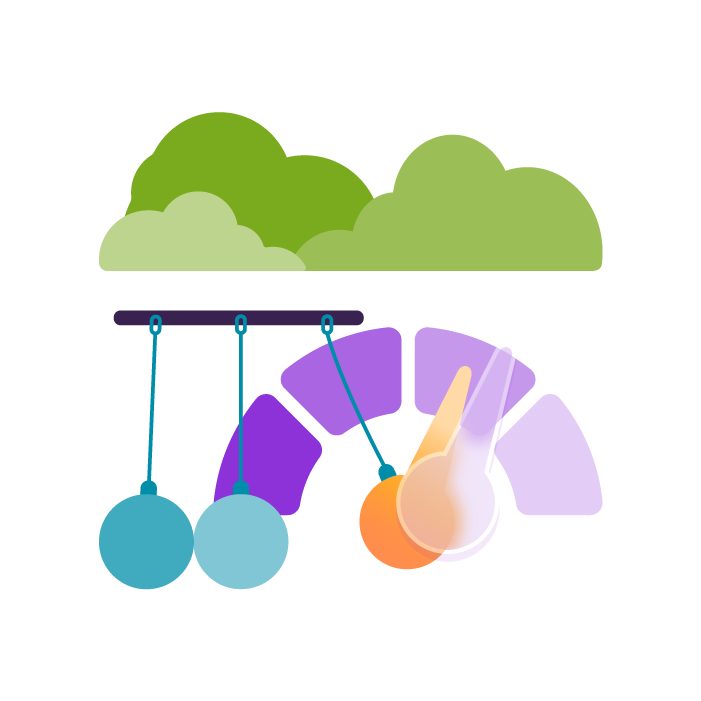
Will a card impact my credit history?
Yes, a credit card can impact your credit history positively or negatively depending on how you use it. If you make your payments on time and keep your balance low, your credit score will improve. However, if you miss payments or have a high balance, your credit score could drop.
Common credit card FAQs
If you're one of the tens of thousands of new credit card holders signing up yearly, there are a few things you should know.
First, make sure you understand how credit card interest and fees work.
It's also important to only spend what you can afford to repay, and to avoid using your credit card for cash withdrawals or taking out a cash advance.
Finally, always make at least the minimum payment on time each month, and keep an eye on your credit card balance so you don't get into debt.
A credit card limit is the maximum amount of credit you're able to borrow on your card. This limit will be unique to each card and user. If you have multiple credit cards, you may notice that each one has a different credit limit. Your credit limit is also commonly known as a credit line.
A credit card balance transfer is when you transfer the balance of one credit card to another. This can be a great way to save money on interest, as you can often find 0% balance transfer fees and deals that last for 12 months or more.
Just be sure to check the small print, as there may be a balance transfer fee to pay. You can also get a balance transfer credit card, which is specifically designed to take on the credit card debt from another card.
The amount you pay per month on your credit card will depend on your credit limit and interest rate. If you have a low credit limit and high interest rate, your monthly payments could be quite high.
On the other hand, if you have a high credit limit and low interest rate, your monthly payments could be quite low. It all depends on the kind of credit card you have, your personal usage and whether you use your credit card responsibly.
Most credit cards can be used to withdraw cash from an ATM, although there may be a fee for doing so.
Check with your credit card company to see if they charge a fee, and how much it is. In most cases, you'll also be charged interest on any cash you withdraw from an ATM, even if you pay off your balance in full each month.
If you plan to withdraw money from a cash machine, it's always a good idea to compare credit cards first, as many will offer different rates.
There are a few ways to turn your credit into cash. You can use a credit card balance transfer to move the balance of your credit card to another card, or you can take out a cash advance from your credit card.
You can also use credit bureaus, or a service like Western Union or MoneyGram to send money from your credit card to your bank account. However, be aware that all of these options will come with fees and interest charges.
It is possible to transfer money from your credit card to your bank account, although there may be a fee for doing so. The best thing to do is to check with your credit card company to see if they charge a fee, and how much it is.
In most cases, you'll also be charged interest on any money you transfer from your credit card to your bank account, even if you pay off your credit card balance in full each month.
In most cases, you'll need to use a debit card or cash to buy a car. However, there are a few companies that will allow you to finance a car with a credit card. Check with your credit card company to see if they offer this service, and be sure to read the small print carefully before you agree to anything.
Another popular choice in the UK is to choose specialised car loans, or car financing, which allow you to pay off the worth of your car over several months or years.
Credit should only really be used when you want added protection, or to spread the cost of a large purchase over several months. The money spent on your card shouldn't really be used for everyday purchases, as you may come to rely on it.
It can be beneficial to your credit report if you use your card for online purchases, as a way to enjoy purchase protection in addition to the benefits of rewards programs, to earn rewards like frequent flyer miles, cashback and more.
Be sure to never exceed your ability to repay, and don't let it alter your spending habits. If you are struggling to repay, you should speak to a financial advisor to receive independent financial advice.
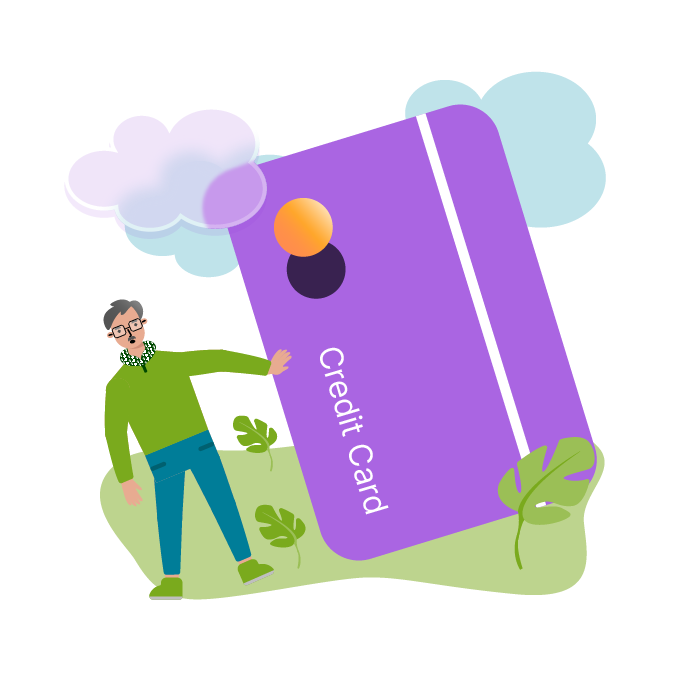
Stuck in credit card debt? A Consolidation Loan could be the way out
If you’re stuck in revolving credit card debt, particularly if it’s spread across multiple cards or even loans, then a credit card consolidation loan could be the best way out. A consolidation loan essentially works by merging all your debts into one, simple and manageable monthly payment.
We consider all credit scores, even bad ones and pride ourselves in offering a real debt solution for real people with zero hidden upfront fees. Check out some of the stories from the people we’ve helped manage their debt and plan for a positive future.
To find out more about debt consolidation loans and bad credit loans available from Consolidation Express, contact our dedicated team of debt solution experts by filling in our quick online application today.
Apply for Debt Consolidation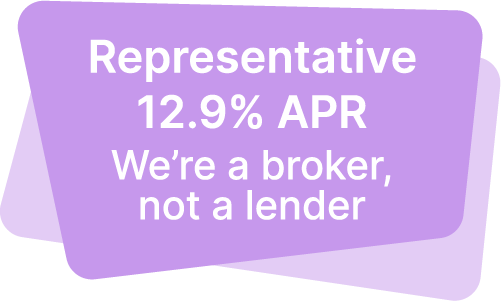
Representative Example: Borrowing £7,500 over 60 months, repaying £167.57 per month, total repayable £10,054.20.
Total cost of credit £2,554.20.
Interest rate 12.9% (variable).
The lenders on our panel offer loans for 12-120 months, with rates from 4.4% APR to 49.9% APR.
